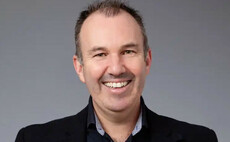Hackers cracked retail system vendors' servers in a bid to steal cash from their customers
The same hackers that attacked Oracle's MICROS retail systems unit, and were even able to inject "malicious code" into some of the company's software, have also compromised the security of at least...
To continue reading this article...
Join Computing
- Unlimited access to real-time news, analysis and opinion from the technology industry
- Receive important and breaking news in our daily newsletter
- Be the first to hear about our events and awards programmes
- Join live member only interviews with IT leaders at the ‘IT Lounge’; your chance to ask your burning tech questions and have them answered
- Access to the Computing Delta hub providing market intelligence and research
- Receive our members-only newsletter with exclusive opinion pieces from senior IT Leaders




















